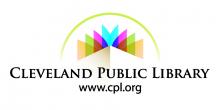MARTIN LUTHER KING, JR., VISITS TO CLEVELAND, which occurred frequently during his career as a civil-rights leader in the 1960s, raised funds for organizations such as the Southern Christian Leadership Conference (SCLC), urged voter registration and participation, and bolstered the local nonviolent civil-rights movement. Rev. Martin Luther King, Jr., first visited Cleveland on 7 Aug. 1956 as the leader of the Montgomery, AL, bus boycott. He reported on the progress of the boycott to the annual convention of the National Negro Funeral Directors Assn. at the HOLLENDEN HOUSE. A scheduled visit in Oct. 1960 was canceled after King was arrested in a sit-in in Atlanta and refused bail. On 26 Nov. 1961, King came to Cleveland and addressed 3,900 people in 2 church services at ANTIOCH BAPTIST CHURCH; later that afternoon he appeared on KYW-TV. King was met by much larger crowds when he returned to Cleveland from the protests in Birmingham, AL, on 14 May 1963. He spoke to the Episcopal Society for Christian & Racial Unity at ST. PAUL EPISCOPAL CHURCH in CLEVELAND HTS. that afternoon. That evening an enthusiastic crowd of 10,000-14,000 mobbed the car carrying King on its way to CORY UNITED METHODIST CHURCH. Since the church could accommodate only 5,000, additional appearances were arranged quickly. King returned to Cleveland on 29 Sept. 1963 and spoke at the installation of his friend, Rev. Kelly Miller Smith, as pastor of Antioch Baptist. A week after winning the Nobel Peace Prize, King was back in Cleveland, on 23 Oct. 1964, in a "march on the ballot box" to urge Clevelanders to vote in the upcoming election. He appeared at 5 street-corner rallies, visited 2 schools, and spoke at Olivet Institutional Church. On 23 Mar. 1965, King left the march from Selma to Montgomery to appear at a Nobel Peace Prize dinner given in his honor at the Sheraton-Cleveland Hotel. The dinner was organized by local religious and civic leaders, with proceeds going to the SCLC. King again visited Cleveland on behalf of voter registration on 27-28 July 1965. He met with local clergy, held community meetings, and spoke to large crowds in MT. PLEASANT and at the CLEVELAND ARENA.
King was a regular visitor to Cleveland during 1967. He came to the city on 26-27 Apr. at the request of the United Pastors' Assn., following several incidents of violence and vandalism in local black communities. In several school appearances, he urged students to learn, not burn, and encouraged self-respect. King also traded barbs with Mayor Ralph Locher (see MAYORAL ADMINISTRATION OF RALPH LOCHER), who had called him an "extremist." King announced that he planned to develop a program of action to improve civil rights in Cleveland, and on 16 May he returned to the city to declare that he planned to lead a drive against "the evils of racial injustice and economic exploitation" in a city that, like others in the North, was "a teeming cauldron of hostility." In a 3-day conference in early June, King and his advisors developed a 4-point plan to organize tenant unions, register voters, improve relations between police and citizens, improve black employment through negotiations, and, if needed, organize direct action protests. The latter program, Operation Breadbasket, led to boycotts against Sealtest and several other companies and was the most visible of the projects, although other events, such as the "ghetto grand jury hearings" on 28 June, dramatized the evils of ghetto life. King returned to the city regularly during the summer and fall of 1967 to help register voters and urge people to vote, as Carl Stokes campaigned to become the first African American mayor of a major American city (see MAYORAL ADMINISTRATION OF CARL B. STOKES). King's last public appearance in Cleveland was on 16 Dec. 1967 at the Human Rights Institute, when he debated the president of the Cleveland Bar Assn., James C. Davis, on civil disobedience. King also spoke to a small east-side group in early 1968. He was assassinated on 4 Apr. 1968, 6 days before his next scheduled return to Cleveland.
View image at Cleveland Public Library.
View image gallery at Cleveland Public Library.
See also AFRICAN AMERICANS.


